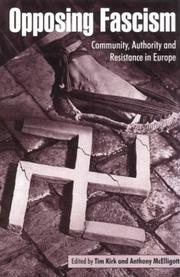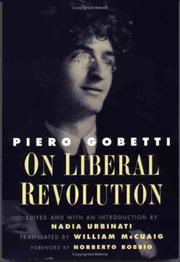| Listing 1 - 10 of 22 | << page >> |
Sort by
|
Book
ISBN: 1108284779 1108278388 1108286933 1108417787 110840586X Year: 2018 Publisher: Cambridge, England : Cambridge University Press,
Abstract | Keywords | Export | Availability | Bookmark
 Loading...
Loading...Choose an application
- Reference Manager
- EndNote
- RefWorks (Direct export to RefWorks)
Antifascism has received little attention compared to its enemy. No historian or social scientist has previously attempted to define its nature and history - yet antifascism became perhaps the most powerful ideology of the twentieth century. Michael Seidman fills this gap by providing the first comprehensive study of antifascisms in Spain, France, the UK, and USA, with new interpretations of the Spanish Civil War, French Popular Front, and Second World War. He shows how two types of antifascism - revolutionary and counterrevolutionary - developed from 1936 to 1945. Revolutionary antifascism dominated the Spanish Republic during its civil war and re-emerged in Eastern Europe at the end of World War II. By contrast, counterrevolutionary antifascists were hegemonic in France, Britain, and the USA. In Western Europe, they restored conservative republics or constitutional monarchies based on Enlightenment principles. This innovative examination of antifascism will interest a wide range of scholars and students of twentieth-century history.
Anti-fascist movements --- Anti-fascist resistance --- Underground, Anti-fascist --- Fascism --- History --- Antifascist movements --- Social movements --- Anti-fascist movements.

ISBN: 0521483093 0521483174 110712669X 0511116225 0511039581 0511330367 0511148526 0511497075 1280151900 0511053142 9780511039584 9780511116223 9780521483094 9780511330360 9780511497070 9780521483179 Year: 1999 Publisher: Cambridge, UK ; New York, NY, USA : Cambridge University Press,
Abstract | Keywords | Export | Availability | Bookmark
 Loading...
Loading...Choose an application
- Reference Manager
- EndNote
- RefWorks (Direct export to RefWorks)
This innovative volume draws together a series of perspectives on the everyday experience of Europeans in the 'age of fascism'. The contributions go beyond the conventional stereotypes of organized resistance to examine the tensions and ambiguities within the communities, both national and local, that opposed fascism. The authors show that under the pressures of civil conflict, occupation, and even everyday life, motives were rarely as pure and political alignments seldom as straightforward as our reassuring collective memories of fascism and war have led us to believe. The combination of original research and engagement with relevant debates makes this collection invaluable both for researchers in the social and political history of World War II and for students of modern European history.
History of Europe --- anno 1940-1949 --- anno 1930-1939 --- Arts and Humanities --- History --- Fascism --- Anti-fascist movements --- Europe --- Politics and government --- Anti-fascist resistance --- Underground, Anti-fascist --- Antifascist movements --- Social movements

ISBN: 1281731080 9786611731083 0300132964 9780300132960 9780300081176 0300081170 0300081189 9780300081183 Year: 2000 Publisher: New Haven : Yale University Press,
Abstract | Keywords | Export | Availability | Bookmark
 Loading...
Loading...Choose an application
- Reference Manager
- EndNote
- RefWorks (Direct export to RefWorks)
This book is the first English-language edition of a collection of writings by one of Italy's most important radical liberals, Piero Gobetti (1901-1926). In thirty-five thought-provoking essays, Gobetti proposes an original and challenging notion of liberalism as a revolutionary theory of both the individual and social and political movements. His theory is of particular relevance in the wake of the collapse of Marxist socialism, as non-Western countries with nonliberal or antiliberal cultural and moral traditions confront the problems of transition toward democracy and liberalism. Gobetti's ideas continue to influence in important ways today's heated debates over the nature of liberalism. Gobetti was the first Italian scholar to identify "two Italy's": one enlightened and modern though small and weak, the other premodern, traditional, and dominant. A witness to the seizure of power by the Fascists, Gobetti became convinced that Italy's hostility to liberalism could be overcome only with a cultural revolution. Endorsing a radical liberalism, he nevertheless believed that the Communists, led by Antonio Gramsci, could play a crucial role in democratizing Italy by helping to develop a secular culture. For a liberal state to subsist and grow, Gobetti argued, there must first be a transformation of both the economic structure and the legal and moral culture of the society.
Liberalism --- Anti-fascist movements --- Anti-fascist resistance --- Underground, Anti-fascist --- Fascism --- Liberal egalitarianism --- Liberty --- Political science --- Social sciences --- History --- Italy --- Politics and government --- liberalisme (overige landen: algemeen) --- fascisme --- Antifascist movements --- Social movements
Book
ISBN: 3838265858 9783838265858 9783838205854 3838205855 3838204158 Year: 2014 Publisher: Stuttgart, Germany : ibidem-Verlag,
Abstract | Keywords | Export | Availability | Bookmark
 Loading...
Loading...Choose an application
- Reference Manager
- EndNote
- RefWorks (Direct export to RefWorks)
Government-organized yet scandal-stricken, Nashi inspires everything from broad support to a reluctance to accept all implications of Putin's political system. This volume shows how Nashi conceptualizes an ideal youth" within the framework of an official national identity politics and as an attempt to mobilize apolitical youth.
Youth --- Young people --- Young persons --- Youngsters --- Youths --- Age groups --- Life cycle, Human --- Political activity --- Youth movements --- Anti-fascist movements --- History. --- Anti-fascist resistance --- Underground, Anti-fascist --- Fascism --- Youth movement --- Social movements --- Antifascist movements
Book
ISBN: 0252051351 0252042506 0252084322 Year: 2020 Publisher: Urbana : University of Illinois Press,
Abstract | Keywords | Export | Availability | Bookmark
 Loading...
Loading...Choose an application
- Reference Manager
- EndNote
- RefWorks (Direct export to RefWorks)
'Death to Fascism' focuses on how social justice immigrant activist Louis Adamic went from being a Slovenian peasant to leading a coalition that included black intellectuals and journalists, working-class militants, ethnic community activists, novelists, and radicals who made antifascism the dominant US political culture from the mid-1930s through 1948.
Slovenian Americans --- Historians --- Social reformers --- Anti-fascist movements --- Anti-fascist resistance --- Underground, Anti-fascist --- Fascism --- Slovene Americans --- Ethnology --- Slovenes --- Adamic, Louis, --- Adamic, Alojzij, --- Adamič, Alojz, --- Political and social views. --- Antifascist movements --- Social movements
Book
ISBN: 9780429328763 9780367349301 0429328761 9781000018875 1000018873 9781000051506 1000051501 9781000051520 1000051528 9781000005530 1000005534 9780429292279 0429292279 9781000012354 1000012352 0367262568 9780367262563 3866444141 Year: 2020 Publisher: London New York Routledge
Abstract | Keywords | Export | Availability | Bookmark
 Loading...
Loading...Choose an application
- Reference Manager
- EndNote
- RefWorks (Direct export to RefWorks)
Between 1936 and 1939, the Spanish Civil War showcased anarchism to the world. News of the revolution in Spain energised a moribund international anarchist movement, and activists from across the globe flocked to Spain to fight against fascism and build the revolution behind the front lines. Those that stayed at home set up groups and newspapers to send money, weapons and solidarity to their Spanish comrades. This book charts this little-known phenomenon through a transnational case study of anarchists from Britain, Ireland and the United States, using a thematic approach to place their efforts in the wider context of the civil war, the anarchist movement and the international left.
History of Spain --- anno 1930-1939 --- Anarchism --- Anti-fascist movements --- HISTORY / Europe / Spain & Portugal --- HISTORY / Europe / General --- HISTORY / Modern / 20th Century --- Anti-fascist resistance --- Underground, Anti-fascist --- Fascism --- History --- Spain --- Participation, Foreign. --- International brigades --- Einflussfaktoren --- Modellierung --- Freeze-Casting --- Mikrostrukturausbildung --- Gefriergießen

ISBN: 9783351034566 3351034563 3351034566 9783351034504 3351034504 Year: 2022 Publisher: Berlin Aufbau
Abstract | Keywords | Export | Availability | Bookmark
 Loading...
Loading...Choose an application
- Reference Manager
- EndNote
- RefWorks (Direct export to RefWorks)
German literature --- Communism --- Anti-fascist movements --- Anti-fascist resistance --- Underground, Anti-fascist --- Fascism --- Bolshevism --- Communist movements --- Leninism --- Maoism --- Marxism --- Trotskyism --- Collectivism --- Totalitarianism --- Post-communism --- Socialism --- Village communities --- Antifascist movements --- Social movements

ISBN: 3425051962 9783425051963 Year: 1981 Publisher: Frankfurt a. M.: Diesterweg,
Abstract | Keywords | Export | Availability | Bookmark
 Loading...
Loading...Choose an application
- Reference Manager
- EndNote
- RefWorks (Direct export to RefWorks)
Socialism --- Communism --- Fascism --- Anti-fascist movements --- Bolshevism --- Communist movements --- Leninism --- Maoism --- Marxism --- Trotskyism --- Collectivism --- Totalitarianism --- Post-communism --- Village communities --- Social democracy --- Socialist movements --- Anarchism --- Critical theory --- Anti-fascist resistance --- Underground, Anti-fascist --- Neo-fascism --- Authoritarianism --- Corporate state --- National socialism --- Synarchism --- Antifascist movements --- Social movements
Book
ISBN: 1108228135 1108229298 1108229522 1108229751 1108230903 1316084108 1108229980 1107085438 1108707696 Year: 2017 Publisher: Cambridge : Cambridge University Press,
Abstract | Keywords | Export | Availability | Bookmark
 Loading...
Loading...Choose an application
- Reference Manager
- EndNote
- RefWorks (Direct export to RefWorks)
Antifascism is usually described as either a political ideology of activists and intellectuals confronting the dictatorships of Hitler and Mussolini, or as a cynical tool that justified the Stalinist expansion of communism in Europe. Andreas Agocs widens our understanding of antifascism by placing it in the context of twentieth-century movements of 'cultural renewal'. He explores the concept of 'antifascist humanism', the attempt by communist and liberal intellectuals and artists to heal the divisions of Nazism by reviving the 'other Germany' of classical Weimar. This project took intellectual shape in German exile communities in Europe and Latin America during World War II and found its institutional embodiment in the Cultural League for Democratic Renewal in Soviet-occupied Berlin in 1945. During the emerging Cold War, antifascist humanism's uneasy blend of twentieth-century mass politics and cultural nationalism became the focal point of new divisions in occupied Germany and the early German Democratic Republic. This study traces German traditions of cultural renewal from their beginnings in antifascist activism to their failure in the emerging Cold War.
Exiles --- Humanism --- Anti-fascist movements --- Anti-fascist resistance --- Underground, Anti-fascist --- Fascism --- Philosophy --- Classical education --- Classical philology --- Philosophical anthropology --- Renaissance --- Persons --- Aliens --- Deportees --- Refugees --- Political activity --- History --- Political aspects --- Kulturbund zur Demokratischen Erneuerung Deutschlands --- Cultural League for the Democratic Renewal of Germany --- Deutscher Kulturbund --- History. --- Germany --- Third Reich, 1933-1945 --- Politics and government --- Cultural policy. --- Intellectual life --- Nationalism --- Antifascist movements --- Social movements
Book
ISBN: 9782728307562 2728307563 Year: 2007 Volume: 329 Publisher: Rome: École française de Rome,
Abstract | Keywords | Export | Availability | Bookmark
 Loading...
Loading...Choose an application
- Reference Manager
- EndNote
- RefWorks (Direct export to RefWorks)
Communism --- Political refugees --- Anti-fascist movements --- Italians --- Communisme --- Réfugiés politiques --- Antifascisme --- Italiens --- History --- Histoire --- Unione popolare italiana --- Italy --- Italie --- Politics and government --- Politique et gouvernement --- Réfugiés politiques --- Ethnology --- Anti-fascist resistance --- Underground, Anti-fascist --- Fascism --- Union populaire italienne --- UPI --- History. --- Communism - Italy - History - 20th century --- Political refugees - France - History - 20th century --- Anti-fascist movements - France - History - 20th century --- Italians - France - History - 20th century --- Antifascist movements --- Social movements --- Réfugiés italiens --- Communistes italiens --- Mouvements antifascistes --- France --- 1900-1945
| Listing 1 - 10 of 22 | << page >> |
Sort by
|

 Search
Search Feedback
Feedback About UniCat
About UniCat  Help
Help News
News